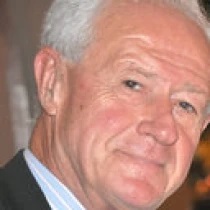Rehabilitation tourism enhances psychosocial health of cancer survivors in Hainan, China
Abstract
Background: Cancer survivors commonly experience considerable psychosocial burden, including anxiety, depression and low quality of life. Rehabilitation tourism—wellness, recovery travel—has been introduced as an intervention to enhance cancer survivorship with growing importance, although little research exists on how rehabilitation tourism can improve psychosocial health of cancer survivors. Methods: This paper was a mixed-method research employing narrative systematic review and semi-structured interviews to explore the effects of rehabilitation tourism on the psychosocial well-being of cancer survivors. A total of 20 survivors of breast, lung, colorectal, lymphoma and uterine cancers (n = 20) undergoing rehabilitation tourism programs in the Hainan Free Trade Port of China were interviewed. Hainan’s distinctive natural recuperation environment and pro-political policy background makes it a perfect place for considering these impacts. Conclusion: The literature review indicates that rehabilitation tourism substantially relieves anxiety and depression and enhances cancer survivors’ quality of life. And the data from qualitive interviews also indicate that being immersed in nature, making strong peer and caregiver social support and learning mindfulness-based activities on the trip could assist cancer survivors making emotional adjustment, fostering social connection and recreating sense of life meaning. They indicated a significant decrease of distress and improvements in positive expectancies and adaptation skills after tourism. Results: The literature review indicated that rehabilitation (wellness) tourism can substantially relieve anxiety and depression and enhance cancer survivors’ quality of life. Likewise, our qualitative interviews found that being immersed in nature, receiving strong peer and caregiver social support, and engaging in mindfulness-based activities during the trip helped survivors with emotional adjustment, fostered social connection, and restored a sense of life meaning. Participants overwhelmingly reported decreased distress and improved positive expectations and adaptive coping skills following the tourism experience. Conclusion: Rehabilitation wellness tourism shows promise as a novel psychosocial oncology intervention. Our findings highlight the therapeutic value of natural healing environments and supportive policy initiatives (such as those in Hainan’s Free Trade Port) in maximizing psychosocial outcomes for cancer survivors. This work offers preliminary insights into how structured wellness tourism can facilitate emotional healing and restore social functioning in cancer survivors. We recommend further research to evaluate its long-term effects and broader applicability in psycho-oncology.
Copyright (c) 2025 Author(s)

This work is licensed under a Creative Commons Attribution 4.0 International License.
References
1. Nakau M, Imanishi J, DAgri Imanishi J, et al. Spiritual care of cancer patients by integrated medicine in urban green space: A pilot study. Explore. 2013; 9(2): 87-90. doi: 10.1016/j.explore.2012.12.002
2. Ahmadi F, Ahmadi N. Nature as the most important coping strategy among cancer patients: A Swedish survey. Journal of Religion and Health. 2013; 54(4): 1177-1190. doi: 10.1007/s10943-013-9810-2
3. Blaschke S, O’Callaghan CC, Schofield P, et al. Cancer patients’ experiences with nature: Normalizing dichotomous realities. Social Science & Medicine. 2017; 172: 107-114. doi: 10.1016/j.socscimed.2016.10.024
4. Blaschke S, O’Callaghan CC, Schofield P. Cancer patients’ recommendations for nature-based design and engagement in oncology contexts: qualitative research. HERD: Health Environments Research & Design Journal. 2017; 11(2): 45-55. doi: 10.1177/1937586717737813
5. Emami E, Amini R, Motalebi G. The effect of nature as positive distractibility on the Healing Process of Patients with cancer in therapeutic settings. Complementary Therapies in Clinical Practice. 2018; 32: 70-73. doi: 10.1016/j.ctcp.2018.05.005
6. Kim H, Lee YW, Ju HJ, et al. An exploratory study on the effects of forest therapy on sleep quality in patients with gastrointestinal tract cancers. International Journal of Environmental Research and Public Health. 2019; 16(14): 2449. doi: 10.3390/ijerph16142449
7. Scates D, Dickinson JI, Sullivan K, et al. Using nature-inspired virtual reality as a distraction to reduce stress and pain among cancer patients. Environment and Behavior. 2020; 52(8): 895-918. doi: 10.1177/0013916520916259
8. Pearson AL, Breeze V, Reuben A, et al. Increased use of porch or backyard nature during COVID-19 associated with lower stress and better symptom experience among breast cancer patients. International Journal of Environmental Research and Public Health. 2021; 18(17): 9102. doi: 10.3390/ijerph18179102
9. Morris SL, Newhouse I, Larocque T, et al. Becoming one with nature: A nature intervention for individuals living with cancer participating in a ten-week group exercise and wellness program. International Journal of Exercise Science. 2021; 14(3). doi: 10.70252/sote9757
10. Albers T, Weiss LA, Sleeman SHE, et al. Evaluation of a positive psychology group intervention in nature for young cancer survivors to promote well-being and post-cancer identity development. Journal of Adolescent and Young Adult Oncology. 2021; 10(6): 726-734. doi: 10.1089/jayao.2020.0147
11. Victorson D, Doninger G, Victorson S, et al. Psychosocial and biological outcomes of immersive, mindfulness-based treks in nature for groups of young adults and caregivers affected by cancer: Results from a single arm program evaluation from 2016–2021. International Journal of Environmental Research and Public Health. 2021; 18(23): 12622. doi: 10.3390/ijerph182312622
12. Chin S, Cavadino A, Akroyd A, et al. An investigation of virtual reality nature experiences in patients with metastatic breast cancer: Secondary analysis of a randomized controlled trial. JMIR Cancer. 2022; 8(3): e38300. doi: 10.2196/38300
13. Rosenberg RS, Lange W, Zebrack B, et al. An outdoor adventure program for young adults with cancer: positive effects on body image and psychosocial functioning. Journal of Psychosocial Oncology. 2014; 32(5): 622-636. doi: 10.1080/07347332.2014.936652
14. Huang L, Xu H. Therapeutic landscapes and longevity: Wellness tourism in Bama. Social Science & Medicine. 2018; 197: 24-32. doi: 10.1016/j.socscimed.2017.11.052
15. Timko Olson ER, Olson AA, Driscoll M, et al. Nature-based interventions and exposure among cancer survivors: A scoping review. International Journal of Environmental Research and Public Health. 2023; 20(3): 2376. doi: 10.3390/ijerph20032376
16. Buckley R, Westaway OAM. Women report that nature tourism provides recovery from psychological trauma. Tourism Recreation Research. 2021; 46(1): 25-37.
17. Zhang S, Li J, Hu X. Peer support interventions on quality of life, depression, anxiety, and self-efficacy among patients with cancer: A systematic review and meta-analysis. Patient Education and Counseling. 2022; 105(11): 3213-3224. doi: 10.1016/j.pec.2022.07.008
18. Onyedibe MCC. Social support moderates the relationship between emotion regulation and health-related quality of life in cancer patients. Psychology, Health & Medicine. 2024; 29(7): 1349-1361. doi: 10.1080/13548506.2024.2325379
19. Xiong W, Wang T, Okumus B, et al. Beyond Experience: Uncovering the Travel Experience of Cancer Patients. Journal of Hospitality & Tourism Research. 2023; 47(10): 1563-1581.
20. Almeida M, Ramos C, Maciel L, et al. Meaning in life, meaning-making and posttraumatic growth in cancer patients: Systematic review and meta-analysis. Frontiers in Psychology. 2022; 13. doi: 10.3389/fpsyg.2022.995981
21. Silva VCE, Bezerra DVS, Barbosa H, et al. Health tourism: Travel practice contributing to restructuring process of elderly subjects with depression. Rev Adm Online Inov Tour. 2021; 15(2): 6302.
22. Ruiz-Rodríguez I, Hombrados-Mendieta I, Melguizo-Garín A, et al. The importance of social support, optimism and resilience on the quality of life of cancer patients. Frontiers in Psychology. 2022; 13. doi: 10.3389/fpsyg.2022.833176
23. Tungtong P, Ranchor AV, Schroevers MJ. Stress appraisal and emotion regulation mediate the association between mindfulness and affect in cancer patients: Differential mechanisms for positive and negative affect. Psycho-Oncology. 2023; 32(10): 1548-1556. doi: 10.1002/pon.6201
24. Wilson K. Therapeutic landscapes and First Nations peoples: An exploration of culture, health and place. Health Place. 2003; 9(2): 83-93. doi: 10.1016/S1353-8292(02)00016-3
25. Wang X, Dai Z, Zhu X, et al. Effects of mindfulness-based stress reduction on quality of life of breast cancer patient: A systematic review and meta-analysis. PLOS ONE. 2024; 19(7): e0306643. doi: 10.1371/journal.pone.0306643
26. Xunlin N, Lau Y, Klainin-Yobas P. The effectiveness of mindfulness-based interventions among cancer patients and survivors: a systematic review and meta-analysis. Supportive Care in Cancer. 2019; 28(4): 1563-1578. doi: 10.1007/s00520-019-05219-9
27. Wang Y, Deeprasert J, Jiang S. Factors affecting the wellness tourism intention of Chinese older adults tourists: Hainan island as a tourism destination. South Eastern European Journal of Public Health. 2024. doi: 10.70135/seejph.vi.2401
28. van der Spek N, Vos J, van Uden-Kraan CF, et al. Efficacy of meaning-centered group psychotherapy for cancer survivors: A randomized controlled trial. Psychological Medicine. 2017; 47(11): 1990-2001. doi: 10.1017/s0033291717000447
29. Ma Z. Hainan envisions creating medical tourism destination. Available online: http://english.www.gov.cn/news/top_news/2019/01/08/content_281476469626184.htm (accessed on 20 May 2025).
30. Xinhua News Agency. Wellness tourism emerges as new holiday trend in China. Available online: https://www.chinadailyhk.com/hk/article/611168 (accessed on 20 May 2025).
31. Bell SL, Foley R, Houghton F, Maddrell A, Williams AM. From therapeutic landscapes to healthy spaces, places and practices: A scoping review. Social Science & Medicine. 2018; 196: 123–130. doi: 10.1016/j.socscimed.2017.11.035.
32. Kearns R, Milligan C. Placing therapeutic landscape as theoretical development in Health & Place. Health & Place. 2020; 61: 102224. doi: 10.1016/j.healthplace.2019.102224.
33. Gesler WM. Therapeutic landscapes: Medical issues in light of the new cultural geography. Social Science & Medicine. 1992;34(7):735–746. doi:10.1016/0277-9536(92)90360-3.



